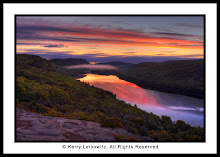
As if killing marine life with sonar wasn’t enough, the US Navy now has plans to take out Manatees too.
I read an article today that is (obviously slanted in the way I lean) pointing out the incredibly destructive nature of the U.S. Navy along with how little it cares for any living creature but the American Human (and is shortsighted even in their care for them). Below is the entire article, originally appearing here.
“Having defeated the Japanese fleet and faced down the Soviets, the U.S. Navy faces a new obstacle, one that hides behind a deceptively gentle, seagrass-munching façade.
Manatees may rank lower than such traditional menaces as torpedoes and air-to-sea missiles. But a proposal to protect additional habitat for them, the Navy says, could end up reducing habitat for destroyers, aircraft carriers and nuclear submarines.
The U.S. Fish and Wildlife Service soon will make a decision on whether to expand what's called critical habitat for the manatee in Florida and southern Georgia, in response to a petition from several environmental groups.
The coastlines of these states bristle with naval installations, such as the historic Pensacola Naval Air Station, where World War II aviators trained; Kings Bay in southern Georgia, home to nuclear-armed Ohio-class submarines; and the South Florida Ocean Testing Facility in Dania Beach, where the Navy operates an undersea range to determine ships' acoustical signatures.
Although the Navy doesn't object in principal to an increase in protected areas — and indeed points out the many measures it takes to prevent harm to endangered species — it says too broad an expansion could have "significant impacts" on Navy operations.
"Manatees and their habitats overlap Navy training and operation areas through the southeast," states the letter from C.R. Destafney, regional environmental program director, Navy Region Southeast, in Jacksonville. "Navy's training involves activities necessary to maintain proficiency in mission-essential areas such as mine warfare, strike warfare, electronic combat and maritime security."
Among the concerns: Security arrangements for Ohio-class submarines entering and exiting their base at Kings Bay. The Navy does not want protections for a marine mammal, no matter how loveable, to compromise security arrangements for submarines approaching shore armed with nuclear weapons.
Another concern is the Navy's ability to dredge channels for deep-draft ships .
Navy spokesman Steve Strickland said the Navy works hard to leave a minimal environmental footprint. For example, he said the Navy conducts aerial surveys of endangered right whales off North Florida to alert Navy ships.
"Certainly the Navy coexists with various endangered species," he said. "We do all kinds of things to help minimize the impact."
The habitat expansion proposal came in a 2008 petition from the Center for Biological Diversity, Defenders of Wildlife, Save the Manatee Club and Wildlife Advocacy Project.
These groups argued that the current critical habitat, drawn up in 1976, is outdated. Since then, they said, a skyrocketing population has brought more boats and more waterfront development, worsening habitat for one of the state's best-loved endangered species, an emblem of Florida's natural heritage.
A critical habitat designation doesn't prohibit construction or other activities. But it does require the wildlife service to review federal activities or decisions that could affect it, such as permitting development, oil drilling, boating or shipping.
Katie Tripp, science and conservation director of The Save the Manatee Club, said there may be ways the Navy could alter operations to protect manatees without any impact on naval operations or training.
"In the past, manatees have not kept the Navy from doing what they need to do," she said. "In this state, endangered species and the military have coexisted."
The petition calls for the protection of dozens of natural springs, seagrass beds, travel corridors and coastlines throughout manatee habitat.
In Broward County, where no critical habitat is currently designated, that includes the entire Intracoastal Waterway, New River system, Whiskey Creek and many other waterways. In Palm Beach County, which already has critical habitat designated in Lake Worth and the northern part of the Intracoastal Waterway, it includes the entire Intracoastal Waterway and connected waterways.
In September the Fish and Wildlife Service made a preliminary determination that a revision of manatee critical habitat "may be warranted." It is now completing a more extensive review, with a decision expected within the next few days or weeks.
Rules to protect manatees have irritated boaters and the marine construction industry for years, and the proposal could face a fight if it moves forward.
Chuck Underwood, spokesman for the Fish and Wildlife Service, said any increase in critical habitat would almost certainly be a fraction of the habitat proposed by the wildlife groups.
He down-played the significance of expanding the species' critical habitat, saying any changes would simply reinforce protections already in place. Of the Navy's comments, he said, "We understand they have concerns, and they're legitimate concerns."’
Okay, so the navy is concerned because of: nuclear weapons, dredging the ocean floor for large ships, and possibly being unable to maintain readiness for warfare. Perhaps if ONE of their reasons was based upon anything but economics and the destruction of environments for warfare and corporate (governmental) greed I would be willing to listen. The navy keeps claiming they are environmental while they continue to destroy the environment (or refuse to let others protect it).
 What is an OPEC producer vs a non-OPEC oil producer? Here’s the answer http://tonto.eia.doe.gov/ftproot/presentations/ieo99_3im/sld010.htm :
What is an OPEC producer vs a non-OPEC oil producer? Here’s the answer http://tonto.eia.doe.gov/ftproot/presentations/ieo99_3im/sld010.htm :

















